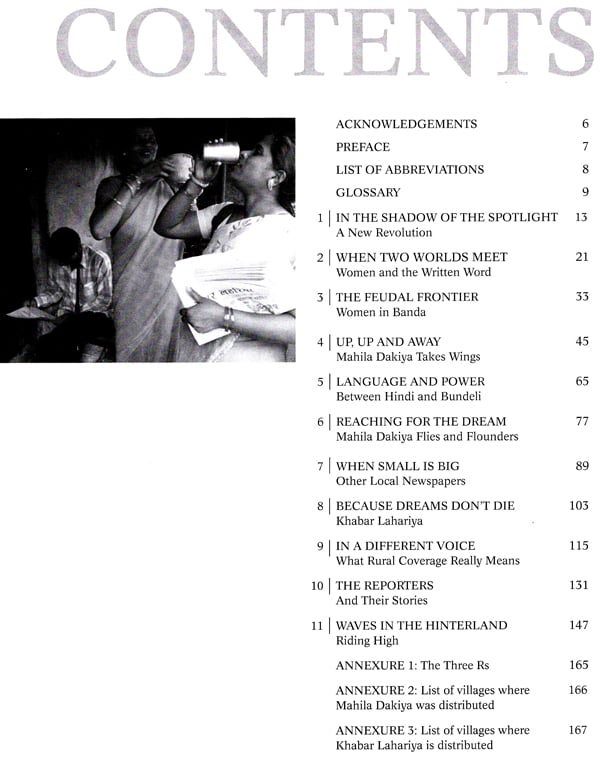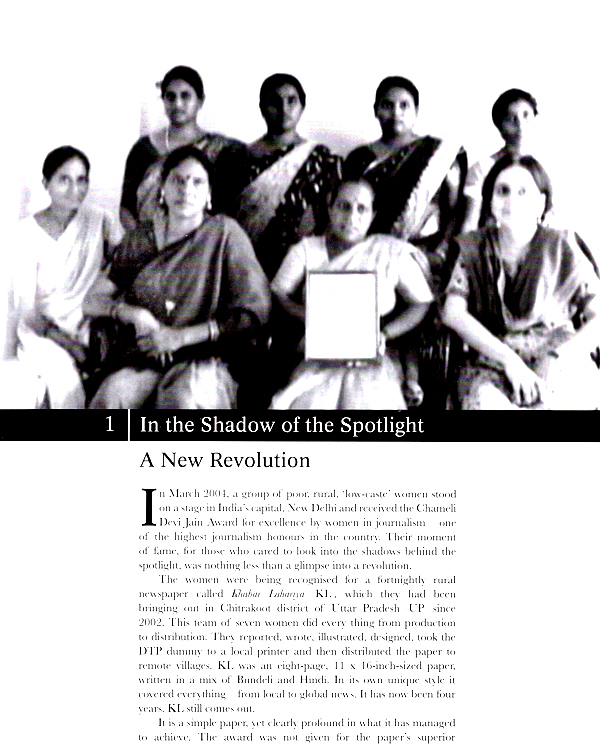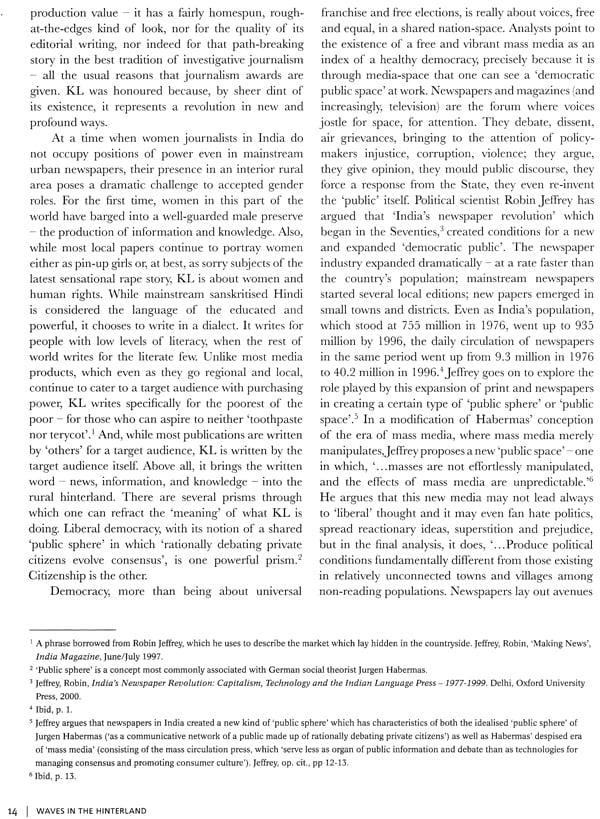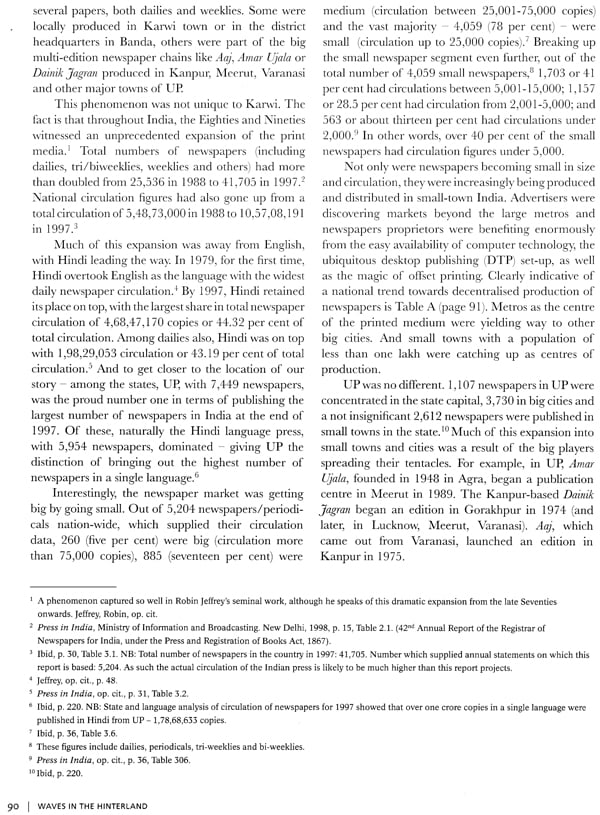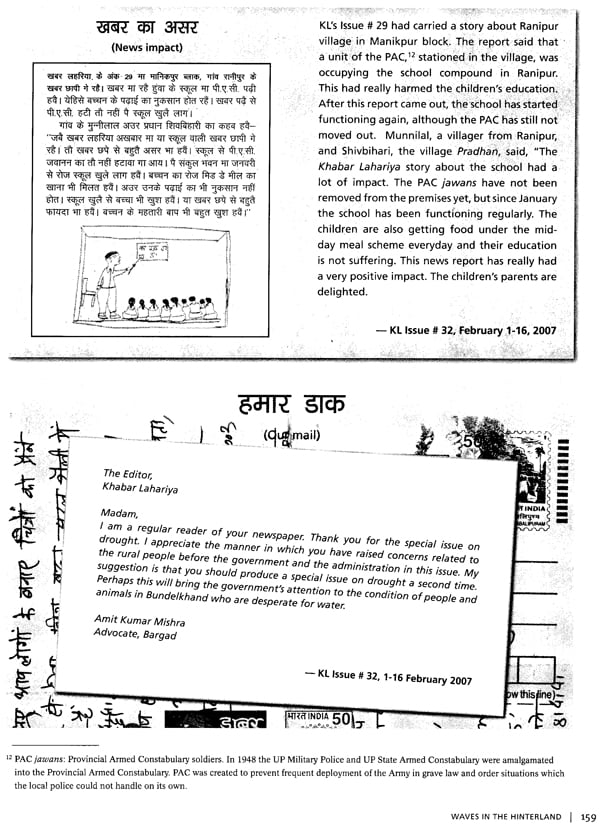
Waves in The Hinterland (The Journey of a Newspaper)
Book Specification
| Item Code: | NAS470 |
| Author: | Farah Naqvi |
| Publisher: | Zubaan Publications |
| Language: | English |
| Edition: | 2007 |
| ISBN: | 9788189884567 |
| Pages: | 170 (Throughout B/W Illustrations) |
| Cover: | PAPERBACK |
| Other Details | 10.00 X 8.50 inch |
| Weight | 500 gm |
Book Description
Waves in the Hinterland takes you on a journey through women's lives in feudal Bundelkhand, on dusty pot-holed roads, through caste prejudice, water shortages, police stations, polling booths, and the world of small-town journalism to tell the story of these two unusual newspapers and the women who made them happen.
In 1996 Mahila Dakaa Amt. the Chameli Devi Jain Award for excellence in journalism. Ahab& Lahariya won the Chameli Devi Jain Award in 2004.
Farah Naqvi is a writer, activist and consultant based in Delhi. She works on 0ender rights, minority rights and media-related issues.
This manuscript has been a long time in the making. I started working on it in October 2001 with the help of a fellowship from the International Human Rights Internship Programme (IHRIP). Just four months later, in February of 2002, the massacre in Gujarat took place, and it changed my world forever. All prior commitments went for a toss. Nothing seemed more important than dealing with whatever Gujarat threw up for me as an activist, a feminist, a woman and a Muslim. Several years went by. The IHRIP got fed up with my delays and stopped asking after me or the status of the report. I guiltily kept quiet. So I am really looking forward to sending them this final product with a big red ribbon around it. I hope Ann Blyberg forgives me.
I need to explain to readers my location as a writer in this entire project. I am both an insider and an outsider. Insider, because I am one of the founder-members of Nirantar, the NGO which has conceived, birthed and nurtured Khabar Lahariya (KL). I worked with Nirantar for four years (1993-1997), some of my best working years. During that time I was also active in the field area in Banda, when Mahila Dakiya (MD; the precursor to KL) was coming out. So, much of what is written in the pages that follow is supported not just by field notes but by vivid memories. In 1997 I left Nirantar. But I always wanted someone to write about MD, which had really been a feminist breakthrough in the field of rural journalism. As luck would have it, no one got around to it and when the time was right I approached Nirantar to let me do the job. I started off writing about MD, but then came the long delays. In the meantime, in 2002 KL was launched and my job as a writer expanded. From being a story of one paper, it now became the story of two.
This is not a celebratory account. Curiously the very 'insider' status which makes me vulnerable to the charge of writing 'too much that's positive' about both MD and KL, has made it possible for all the multiple actors in this drama to trust me; and be honest about their warts and worries and continuing dilemmas, which are such an essential part of this story.
**Contents and Sample Pages**
